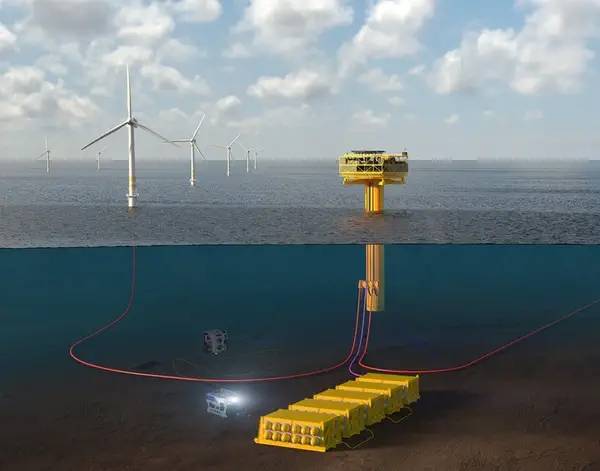Jon Landes comes with 25 years’ experience in the energy industry. As President, Subsea, Landes has global responsibility for TechnipFMC’s subsea business he’s now in a great place to tackle how we can embrace and shape the energy transition with sustainable solutions. Ahead of his keynote speach at this year’s upcoming Underwater Technology Conference (UTC), June 16-17, and just this topic, we caught up with Jon on how TechnipFMC is responding to the energy transition.
- Hi Jon, tell us, how has TechnipFMC responded to the energy transition and our need to decarbonize?
The energy transition from hydrocarbon-based energy to renewable energy is critical in order to decarbonize energy use and reach the ambitions of the Paris Agreement. TechnipFMC has been in the renewable energy space for quite some time, but we are proud to be moving forward in new, substantial ways. Over the past four years, we have been developing Deep Purple, a new energy system concept that uniquely integrates proven technologies to deliver at-scale solutions for offshore green hydrogen production and sustainable renewable energy. We are also working with Bombora to evolve a concept that combines offshore floating wind and wave to reduce cost of renewable energy. In addition, we recently formed a partnership with Magnora in Norway to bid for licenses developing offshore wind farms.
- What more is TechnipFMC planning to do?
We are also supporting our clients in decarbonizing their upstream activities. First and foremost, we take responsibility for our own emissions and have set a target to reduce our Scope 1 and 2 emissions by 50% by 2030. For example, we have reduced Deep Arctic’s fuel use and emissions by 20 percent by upgrading to run as a battery hybrid, making it the industry’s first hybrid dive support vessel. And we are using alternative energy sources – like certified renewable energy - in offices and manufacturing plants.
Within our portfolio of subsea equipment, we offer solutions that can help our clients reduce their emissions through systems that can consolidate subsea infrastructure and footprint. Our unique integrated EPCI (iEPCI) project model, which combines the SPS and SURF scopes and enables early engagement with clients to optimize the subsea infrastructure, will deliver in this ambition.
- What are the challenges for the company and the wider industry in achieving net zero?
Achieving net zero on upstream operations can be a daunting task. However, some elements are easier to achieve – primarily because it will involve standardized and configure-to-order solutions, which are normally more cost competitive than traditional engineer-to-order solutions. Allowing for vendor-based standardized components that can be configured to order to meet clients’ requirements is one challenge that we can meet today. This will allow us to reduce our emissions from the manufacturing and installation processes.
Another challenge is to allow for further integration in the execution model – mainly, closer collaboration between the client and system integrator. This will enable consolidation of infrastructure and therefore reduced emissions. The main contributor to the emissions from upstream operations is running gas turbines on the platform. Electrification of the platforms with renewable energy either from shore or produced offshore is required. The main challenge here is cost. Some of the cost can be reduced by allowing for standardized solutions and our iEPCI contracting model, but some also needs to be financed through a CO2 tax regime.
- What do policy makers and operators need to consider to support the supply chain in this transition?
By working in collaboration with each other, operators can enable TechnipFMC to do now what we know will have an impact to our collective carbon emission reduction targets. This challenge is too big for each of us to work separately finding solutions – we need the entire industry, and new partners, to come together to solve this, just as we have on safety.
- Thank you Jon, we appreciate your time!
Jon Landes is one of the keynote speakers and technical presenters at UTC 2021, which will be held online this year. Read the full program here.
UTC is co-organized by the Underwater Technology Foundation (UTF) and GCE Ocean Technology, supported by the City of Bergen. Register here.
 Deep Purple is a new energy system concept that integrates proven technologies to deliver at-scale solutions for offshore green hydrogen production and sustainable renewable energy. Photo courtesy TechnipFMC
Deep Purple is a new energy system concept that integrates proven technologies to deliver at-scale solutions for offshore green hydrogen production and sustainable renewable energy. Photo courtesy TechnipFMC




No comments
Post a Comment